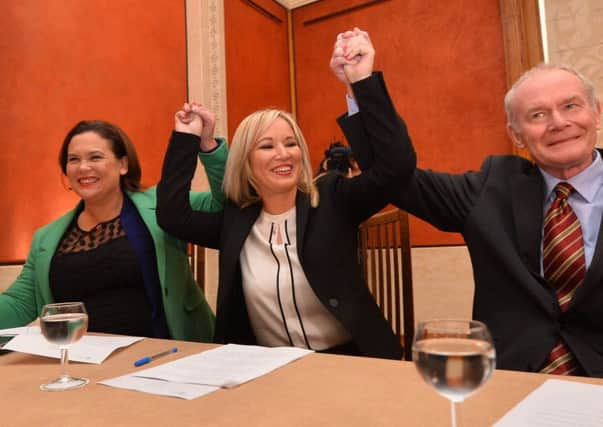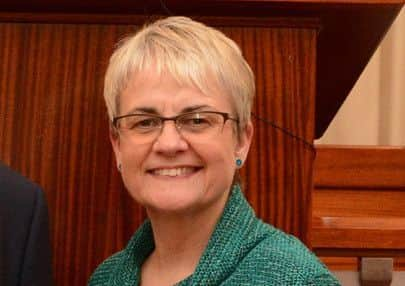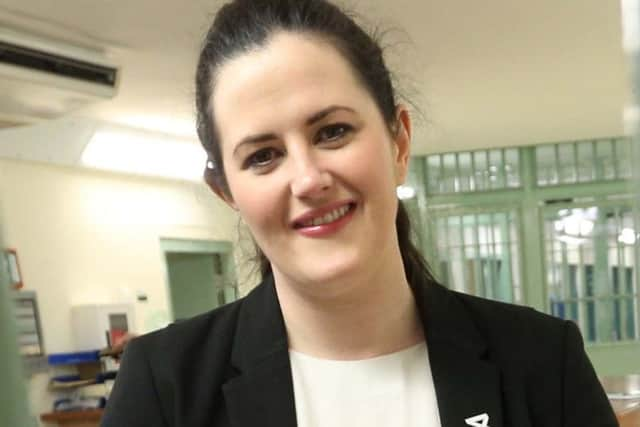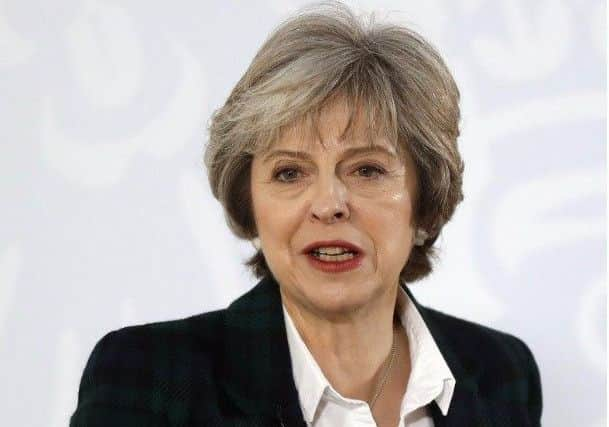Ben Lowry: It is clear that women no longer face discrimination in NI politics


Or if they still do, then not in Northern Ireland.
With Michelle O’Neill’s elevation in Sinn Fein this week, most of the main parties in the Province have had a woman leader.
The parties have been crying out for female talent, and keen to promote it when it arrives.


This is a radical change on the not too distant past.
Advertisement
Hide AdAdvertisement
Hide AdA few weeks ago I was at a fascinating talk by Stratton Mills, a distinguished former Ulster Unionist MP for North Belfast (he ended up defecting to Alliance shortly before he stepped down in 1974 and was until 2010 the only MP it had had).
I would guess that there are less than a half a dozen ex politicians alive now who were MPs in 1959 – as he was, having been first elected, aged 27, to the House of Commons in the general election of that year. He was one of the youngest MPs.
Even youthful MPs who were aged in their mid 30s in 1959, such as Margaret Thatcher who also entered the Commons for the first time that year, would now be well into their 90s if still alive.


The talk was so interesting because Mr Mills is a living link to an utterly different era. And it was one in which women were certainly discriminated against in politics – as indeed were plenty of other categories of people.
Advertisement
Hide AdAdvertisement
Hide AdMr Mills talked about how he had been turned down for other seats because he was merely a professional, and not an aristocrat.
The Conservative and Unionist Party then was deeply traditional. Most Northern Ireland MPs of the 1950s had been to Oxford or Cambridge.
Mrs Thatcher was one of 25 MPs when she was first elected in 1959. Now there are almost 200 female MPs.


In 1970 she said: “There will not be a woman prime minister in my lifetime – the male population is too prejudiced.”
Advertisement
Hide AdAdvertisement
Hide AdDid she really believe that, I wonder? Perhaps – the concept of a female prime minister must have still seemed remote.
Within a decade she was in 10 Downing Street.
We have now reached a point in politics where the lack of women in politics is certainly to some extent due to women not coming forward for selection.


There will always be a view that this is self-selecting discrimination, due to the fact that women find politics a sexist arena.
I believe that some people will blame bias until that claim is no longer tenable and we reach a point where more women are politicians than men.
Advertisement
Hide AdAdvertisement
Hide AdIt would not surprise me if that day comes. Medicine was once a sexist world. When my grandmother was born in 1913 there were very few female doctors but she did go on to qualify as a physician.
She had a daughter and granddaughter who did the same – the latter practising in 2017, which is set to be the year in which there will be more female doctors than men in Britain.
Some people believe women make better doctors than men, because they can be both smart and empathetic.
Sir Max Hastings, one of the most impressive journalists in modern British history, believes that women make better senior executives on newspapers than men.


Advertisement
Hide AdAdvertisement
Hide AdI am open to the idea that women, at their best – people such as Mrs Thatcher and Angela Merkel and Theresa May – also bring a blend of qualities that make them outstanding leaders.
Last year I wrote about a newly unveiled account of a key 1985 meeting in which Mrs Thatcher held out against almost all of her senior colleagues in opposition to their desire to join the European Exchange Rate Mechanism (ERM) – ranged against her were her powerful cabinet ministers William Whitelaw, Norman Tebbit, Nigel Lawson, Geoffrey Howe, John Biffen, Leon Brittan, as well as the governor of the Bank of England, Robin Leigh-Pemberton.
I believe that very few men would be able to stand up to such immense pressure, and would probably seek a compromise for fear that losing such a battle would lead to them being toppled overall.
Mrs Thatcher prevailed but years later gave in on ERM (she was ultimately vindicated because it ended in fiasco).
Advertisement
Hide AdAdvertisement
Hide AdTheresa May, while not perhaps publicly known to have won such a crucial battle against a phalanx of powerful male opponents, has a reputation for having been a tough Home Secretary.
As prime minister she has shown leadership instincts, taking clear decisions that sometimes pull her out of a consensus.
Her comments to Republican politicians in Philadelphia, for example, marked a decisive shift on the foreign interventionist approach of Blair and Cameron.
Leadership of that variety, going against conventional wisdoms, is in short supply in Northern Ireland, from men or women, now that Peter Robinson and Martin McGuinness are gone.
Advertisement
Hide AdAdvertisement
Hide AdWhatever their shortcomings, they were generally adept at delivering things (albeit often doing something unpopular under a guise of doing something else).
The problem of tame leadership today, in which politicians can be highly reliant on advice from officials, rather than thinking boldly and originally, is not a problem unique to this Province.
It is in fact a problem with attracting talented people into politics that is affecting the western World.
Look at how the many candidates who ran for US president last year seemed mediocre, despite the fact that America is an immensely rich country with millions of talented people.
Advertisement
Hide AdAdvertisement
Hide AdSo when you get down to regional politics, such as Northern Ireland, talent is even more sparse.
Much of the blame, I believe, lies with the brightest and best of the professional classes – people of sometimes stupendous ability who will not bother with a profession as fascinating as politics because it does not pay well.
There are, by the way, plenty of talented people in politics – this outgoing Assembly is one of the most interesting so far (Eamonn McCann, Doug Beattie, Claire Hanna, Alastair Ross among numerous other respected and more established names).
But there are also plenty of people who are not so able.
My view is that the double jobbing ban was unnecessary and has caused the DUP particular problems – a raft of its most experienced people are now in Westminster.
Advertisement
Hide AdAdvertisement
Hide AdI do not see a problem with people being a member of Stormont and the House of Commons, if electors approve it. However, they should only get one salary and one set of expenses if so.
Now, ridiculously, you cannot even be a councillor and an MLA.
Happily now, however, sexism is not a problem in politics.
There will of course still be instances of discrimination against women, but it will be counter balanced by times when a man loses out to an inferior female candidate.
Now all politicians will have to stand on their merits. It won’t be easy for any of them.
Advertisement
Hide AdAdvertisement
Hide AdMargaret Ritchie, one of the nicest people in politics, was in effect deposed as SDLP leader after 21 months.
And Michelle O’Neill will, like anyone at the top of politics, find it tough.
• Ben Lowry (@BenLowry2) is News Letter deputy editor